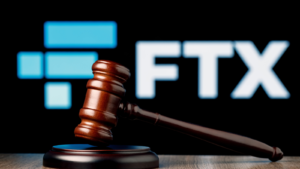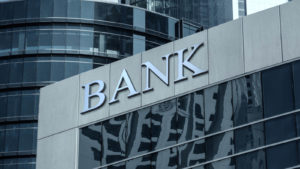
The year 2023 has been a remarkable one for U.S. equities markets, as both the S&P 500 and the Nasdaq Composite are approaching rally territory after an extended market sell off from August to October. As of late November, the S&P 500 has gained 18.6% year-to-date, while the Nasdaq Composite has soared over 36.4%.
These impressive returns reflect the resilience of the U.S. economy even as the Federal Reserve is currently targeting a federal funds rate between 5.25% and 5.50%.
However, a rally does not mean a smooth ride. The markets have faced various shocks and dramas in 2023, some of which have had significant implications for investors. Below is a recap of the three of the most notable ones.
FTX and Its Fall from Grace

No company this year has experienced such a steep fall from grace as the crypto-exchange giant FTX. For those unaware, a crypto or digital currency exchange is just a platform wherein users can buy and sell a number of cryptocurrencies. Such exchanges have become popular as younger investors have increasingly allocated to cryptocurrencies. Though FTX was only founded in 2019, the company rose to dominance through a number of acquisitions and high-profile equity fundraisers from top-tier investment managers. The founder and face of the crypto exchange was Sam Bankman-Fried.
Earlier this year, as many cryptocurrencies and exchanges took a big hit, FTX seemed immune only until Alameda Research, another Sam Bankman-Fried company that invested into crypto directly, had its balance sheet leaked. The leak revealed the Alameda had billions of dollars’ worth of FTT, an FTX-issued cryptocurrency. The inherent problem with this was, Alameda had used FTX’s client deposits to purchase cryptocurrency without divulging this to customers.
After the balance sheet leak, customers began withdrawing money at a rapid pace, eventually pushing FTX to bankruptcy. Eventually, Sam Bankman-Fried was tried and convicted of fraud.
Another U.S. Banking Crisis

In March of this year, a sudden wave of awe-inducing bank failures rocked the U.S. financial sector. The sequential collapses of Signature Bank, Silicon Valley Bank, and First Republic Bank triggered a panic among depositors and regulators. All of them had to scramble to prevent a systemic contagion.
The crisis was partly facilitated by the U.S. Federal Reserve hiking interest rates as quickly as it had done. This in turn devalued the treasury bonds-holdings held on the balance sheets of many banks. Ultimately, the crisis also exposed a wider vulnerability of banks that had invested heavily in long-term treasury bonds. Those of which lost value as interest rates rose sharply in response to inflationary pressures.
In the end, the U.S. Treasury Department, through the Federal Deposit Insurance Company (FDIC), placed the aforementioned banks into receivership, and financial stocks took a big hit in the aftermath.
The OpenAI Board Debacle

Market watchers, consumers and government officials alike have fixed their attention on artificial intelligence (AI) this year. A lot of the buzz surrounding AI is primarily due to non-profit start-up called OpenAI. In the beginning of the year, the non-profit, helmed by founder Sam Altman, launched ChatGPT, an advanced conversational AI developed using large language models (LLMs), dazzling many.
Last week, the board of OpenAI attempted to oust Sam Altman. Unfortunately for the board, OpenAI’s engineers threatened to leave the company to work for OpenAI’s main investor, Microsoft (NASDAQ:MSFT). In the end, Sam Altman returned to helm, and the new board fired the individuals who had led the coup. The reasons for Altman’s attempted firing are still largely unclear as the non-profit has so far kept the true reason close to its chest.
On the date of publication, Tyrik Torres did not have (either directly or indirectly) any positions in the securities mentioned in this article. The opinions expressed in this article are those of the writer, subject to the InvestorPlace.com Publishing Guidelines.







